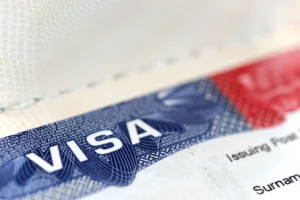Thailand has been gaining momentum as a business hub, offering a myriad of opportunities for both local and foreign entrepreneurs. With its strategic location, vibrant culture, and burgeoning markets, the country has become an appealing destination for business ventures. Among the various types of business structures in Thailand, a limited company remains one of the most popular choices. This guide aims to provide a comprehensive overview of how to go about registering a limited company in the Land of Smiles.
Why Register a Limited Company in Thailand?
The limited company structure offers several benefits, including liability protection for shareholders, tax incentives, and a well-defined corporate structure that makes management and ownership straightforward. Additionally, a limited company can be wholly or partially owned by foreigners, depending on the nature of the business and subject to specific industry regulations.
Legal and Regulatory Framework
Understanding the legal environment is crucial when setting up a business in a foreign country. In Thailand, the primary legislative frameworks governing limited companies are the Civil and Commercial Code, the Revenue Code, and the Foreign Business Act of 1999.
Types of Limited Companies
Thailand offers two main types of limited companies:
- Private Limited Companies: This is the most common type of limited company. Foreign ownership is generally restricted to 49%.
- Public Limited Companies: Suitable for larger operations, these companies can be listed on the Thailand Stock Exchange, and they offer greater flexibility in terms of foreign ownership.
Pre-Registration Considerations
Before diving into the registration process, consider the following:
- Business Scope: Clearly define the scope of your business activities, as this affects registration and potential foreign business restrictions.
- Shareholders and Directors: A private limited company needs a minimum of three shareholders and one director. Shareholders can be of any nationality but think about the 49% foreign ownership rule.
- Capital Requirements: While Thailand doesn’t impose strict minimum capital requirements, the capital should be sufficient for the intended business activity. For visa and work permit purposes, a foreigner’s company should have a minimum of 2 million THB in registered capital.
Step-by-Step Registration Guide
Step 1: Company Name Reservation
First, you need to reserve your company name with the Department of Business Development (DBD) under the Ministry of Commerce. Ensure the name is unique and does not violate any existing trademarks or company names.
Step 2: File Memorandum of Association
Submit the Memorandum of Association to the DBD. It should include the company name, location, business objectives, and the amount of share capital, along with the shareholders’ names.
Step 3: Convene a Statutory Meeting
The next step is to hold a statutory meeting where shareholders will adopt the Articles of Association, ratify the appointed directors, and subscribe to shares.
Step 4: Company Registration
Within three months of the statutory meeting, register the company with the DBD. Submit the required documents, which usually include the Memorandum of Association, Articles of Association, and evidence of share capital payment.
Step 5: Tax ID Registration
After the company registration is completed, you need to obtain a Tax Identification Number from the Revenue Department within 60 days.
Step 6: Register for Social Security
You also need to register your business and employees with the Social Security Office, which should be done within 30 days of your first employee’s start date.
Step 7: Apply for Business Licenses
Depending on your business activity, you may need additional licenses, such as a factory license or an import/export license. Make sure you have all necessary permissions before commencing operations.
Compliance and Reporting
After registration, companies are required to maintain proper accounting records, have their accounts audited annually, and submit tax returns. Moreover, each year, a limited company is required to hold an annual general meeting (AGM).
Foreign Ownership and BOI Promotion
Foreign investors often seek promotion from Thailand’s Board of Investment (BOI) to bypass some of the foreign ownership restrictions. Companies promoted by the BOI can enjoy a range of benefits, including tax breaks and easier work permit and visa processes.
In Summary
Setting up a limited company in Thailand can be a relatively straightforward process, but it does require attention to detail and a deep understanding of local laws and regulations. With its burgeoning economy and business-friendly environment, Thailand offers fertile ground for entrepreneurs. However, proper planning, along with legal and financial advice, is crucial for a smooth registration process and successful operation thereafter. By following the guidelines set forth in this comprehensive guide, you’ll be well on your way to establishing a robust business presence in Thailand.




